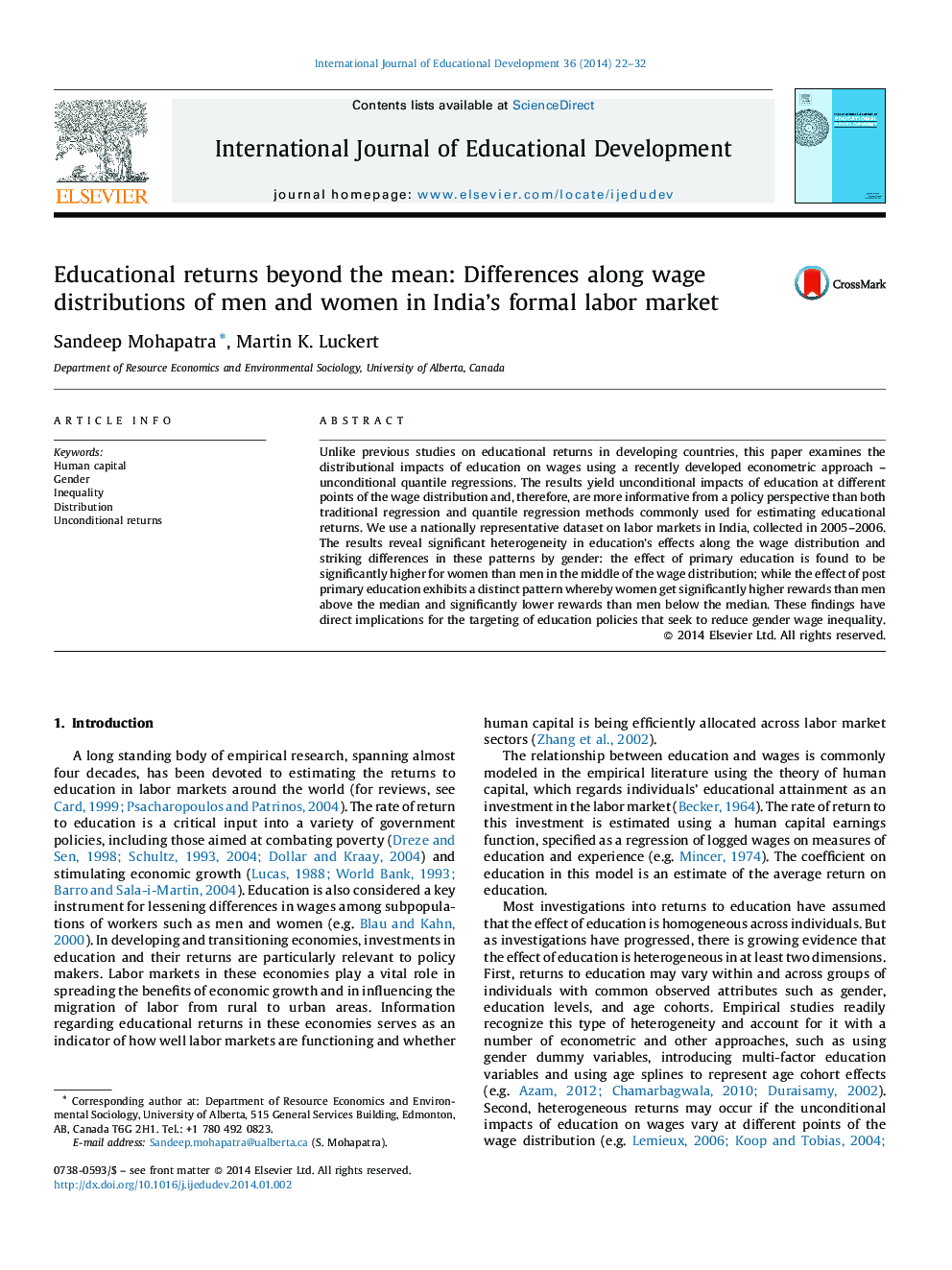| کد مقاله | کد نشریه | سال انتشار | مقاله انگلیسی | نسخه تمام متن |
|---|---|---|---|---|
| 356117 | 1435124 | 2014 | 11 صفحه PDF | دانلود رایگان |
• We examine unconditional educational returns in India's formal labor markets.
• We find that primary education benefits women more than men in the middle of the wage distribution.
• Post primary education benefits women more (less) than men above (below) the median.
• These unconditional impacts of education on wage distributions are critical for targeting education policies to reduce wage inequality.
Unlike previous studies on educational returns in developing countries, this paper examines the distributional impacts of education on wages using a recently developed econometric approach – unconditional quantile regressions. The results yield unconditional impacts of education at different points of the wage distribution and, therefore, are more informative from a policy perspective than both traditional regression and quantile regression methods commonly used for estimating educational returns. We use a nationally representative dataset on labor markets in India, collected in 2005–2006. The results reveal significant heterogeneity in education's effects along the wage distribution and striking differences in these patterns by gender: the effect of primary education is found to be significantly higher for women than men in the middle of the wage distribution; while the effect of post primary education exhibits a distinct pattern whereby women get significantly higher rewards than men above the median and significantly lower rewards than men below the median. These findings have direct implications for the targeting of education policies that seek to reduce gender wage inequality.
Journal: International Journal of Educational Development - Volume 36, May 2014, Pages 22–32
